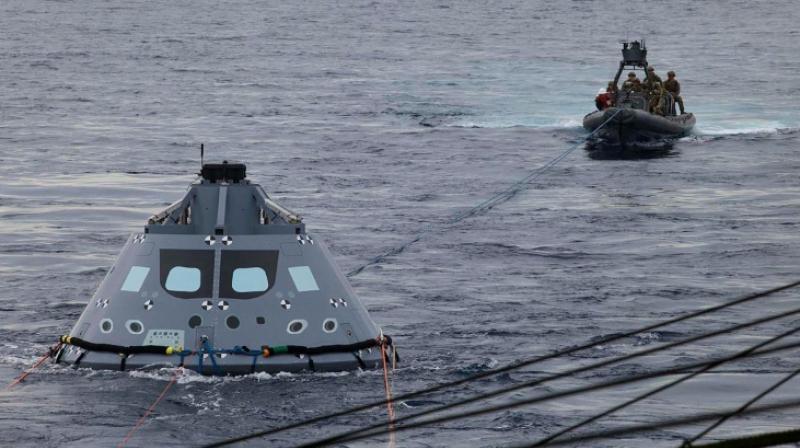US Navy plane crashes into pacific with 11 aboard, 3 missing
The Navy's Japan-based 7th Fleet said in a statement that a search and rescue operation was launched from the carrier.

Tokyo: A plane carrying 11 crew and passengers crashed into the Pacific Ocean on Wednesday while on the way to the USS Ronald Reagan aircraft carrier, the Navy said.
Eight of the people on board have been found, Japan's defense minister told reporters, but it was unclear whether they were alive. The Defense Ministry said it had no information on their condition.
The Navy's Japan-based 7th Fleet said in a statement that a search and rescue operation was launched from the carrier.
"Personnel recovery is underway and their condition will be evaluated by USS Ronald Reagan medical staff," the statement said.
The C-2 "Greyhound" aircraft crashed into the Pacific about 150 kilometers (90 miles) northwest of Okinotorishima, a Japanese atoll, Defense Minister Itsunori Onodera said, according to a ministry spokesman.
The Navy said the ship was operating in the Philippine Sea, which is east of the Philippines, when the crash occurred at 2:45 p.m. Japan time. The names of the crew and passengers are being withheld pending next of kin notification.
The cause of the crash was not immediately clear, the Navy said.
The plane was taking part in an ongoing joint US-Japan naval exercise in waters surrounding Okinawa from Nov. 16-26. The Navy called it the "premier training event" between the two navies, designed to increase defensive readiness and interoperability in air and sea operations.
The 7th Fleet has had two fatal accidents in Asian waters this year, leaving 17 sailors dead and prompting the removal of eight top Navy officers from their posts, including the 7th Fleet commander.
The USS John S. McCain and an oil tanker collided near Singapore in August, leaving 10 U.S. sailors dead. Seven sailors died in June when the USS Fitzgerald and a container ship collided off Japan.
The Navy has concluded that the collisions were avoidable and resulted from widespread failures by the crews and commanders, who didn't quickly recognize and respond to unfolding emergencies. A Navy report recommended numerous changes to address the problems, ranging from improved training to increasing sleep and stress management for sailors.

